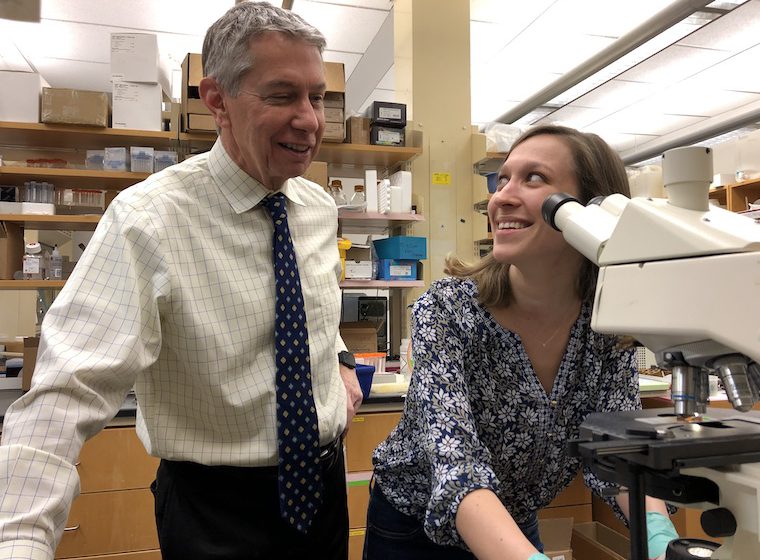It’s interesting to see how discovery leads to discovery around here. Case in point: A while back, our Gary K. Owens, PhD, and Olga A. Cherepanova, PhD, found that a gene that was thought to be inactive in adults was actually important for the body’s ability to form protective caps on atherosclerotic lesions inside the blood vessels. These caps are vital for stabilizing the plaques and preventing them from rupturing and causing strokes and heart attacks. Well, it turns out that’s not the only important job the gene, Oct4, has in adults.
Continuing that line of research, Dr. Owens and his team, including Molly R. Kelly-Goss and Daniel L. Hess, have determined that Oct4 is crucial for the formation of blood vessels. The lab’s latest discovery sheds light on how blood vessels develop and why so many efforts to grow them have failed. Such efforts traditionally have focused on growing endothelial cells, which make up the inner layer of blood vessels. The thought was that any other cells that were needed would naturally follow suit. Only they didn’t, and Dr. Owens and co. have explained why. It turns out there’s a much more complex relationship between the endothelial cells and another cell type, called perivascular cells. The two cell types actually communicate with each another via Oct4-dependent processes; without that chatter, non-leaky blood vessels and healthy blood vessel networks can’t form.
This discovery will save researchers from the time and expense of continuing to do clinical trials that are doomed to fail, and it will pave the way for more effective approaches that will benefit patients. All because Dr. Owens took a look at a gene that was supposed to be inactive in adults.
Pictured at top: Gary K. Owens, PhD, director of UVA’s Robert M. Berne Cardiovascular Research Center, consults with researcher Molly R. Kelly-Goss.
